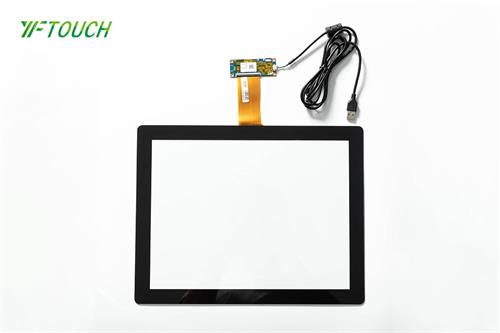In the fast-paced digital age, Touch Screen Technology has emerged as a transformative force, revolutionizing the way we interact with electronic devices. Its widespread adoption in consumer electronics, such as smartphones, tablets, and interactive kiosks, has led to a surge in its popularity and functionality. Touch Screens have not only enhanced user experience but also found applications in various industries, from retail and hospitality to healthcare and education. The question that arises is: can touch screen technology be effectively and profitably utilized for commercial purposes?

Touch screen technology has undoubtedly proven its commercial viability across numerous sectors. One of its primary advantages lies in its intuitive interface, allowing users to interact directly with the content displayed on the screen. This direct engagement enhances user satisfaction and encourages customer interaction, making Touch Screens an ideal choice for businesses aiming to create engaging and immersive experiences for their clients. In retail environments, touch screens facilitate seamless product browsing, enabling customers to explore an extensive range of products with just a few taps. This interactive approach not only captures the attention of potential buyers but also streamlines the purchasing process, leading to increased sales and customer loyalty.
Furthermore, touch screens have found significant applications in the hospitality industry, particularly in restaurants and hotels. Interactive menus and self-service kiosks equipped with touch screen technology empower customers to customize their orders, place reservations, and check-in/out efficiently. This streamlined approach not only reduces waiting times but also minimizes errors, enhancing overall customer satisfaction. Additionally, touch screens facilitate data collection, enabling businesses to gather valuable insights about customer preferences and behaviors. These insights can be leveraged to make data-driven decisions, optimize marketing strategies, and improve operational efficiency, thereby maximizing profits.
In healthcare, touch screens have transformed patient care by providing user-friendly interfaces for medical professionals to access electronic health records, monitor vital signs, and facilitate telemedicine consultations. The ease of use and portability of Touch Screen Devices have significantly improved communication among healthcare providers and enhanced patient outcomes. Moreover, touch screen technology has become instrumental in educational settings, facilitating interactive learning experiences for students of all ages. Interactive whiteboards and tablets equipped with touch screens enable educators to create engaging lessons, fostering active participation and knowledge retention among students.
In conclusion, touch screen technology has undeniably proven its commercial viability, offering diverse applications across various industries. Its intuitive interface, coupled with the ability to enhance customer engagement, streamline processes, and gather valuable data, makes it a powerful tool for businesses seeking innovative solutions to meet the evolving demands of the market. As technology continues to advance, touch screens are expected to play a pivotal role in shaping the future of commercial interactions, further emphasizing their significance in the modern business landscape.
Copyright © 2026 Dongguan Yuefeng Optoelectronics Co., Ltd All rights reserved.